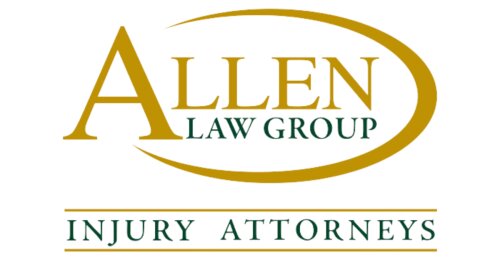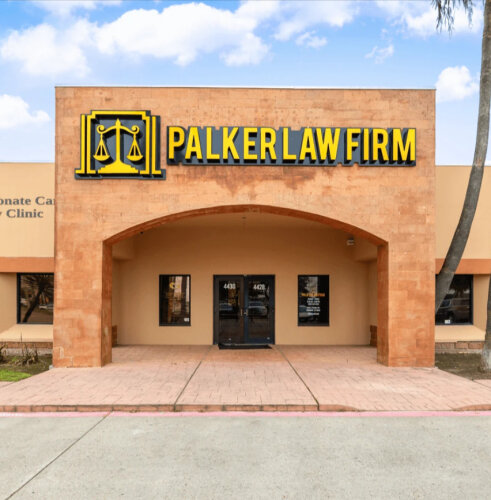Best Bad Faith Insurance Lawyers in Illinois
Share your needs with us, get contacted by law firms.
Free. Takes 2 min.
Or refine your search by selecting a city:
List of the best lawyers in Illinois, United States
About Bad Faith Insurance Law in Illinois, United States
Bad faith insurance law in Illinois refers to legal actions that arise when an insurance company fails to fulfill its contractual duties to its policyholders with honesty, fairness, or good faith. Insurance companies are legally required to process, investigate, and pay legitimate claims promptly and fairly. When insurers delay, undervalue, or deny claims without reasonable cause, they might be acting in bad faith. Illinois law recognizes the serious consequences of this conduct for policyholders and provides various remedies to protect consumer rights.
Why You May Need a Lawyer
Individuals and businesses often find themselves in a position where they suspect their insurance company is not treating them fairly. Common scenarios include unjust claim denials, unreasonable delays in handling claims, or offers to settle claims for much less than their valid value. In such cases, insurance companies may be leveraging their position of power and superior resources against policyholders. If you experience persistent problems when dealing with your insurer, legal counsel can help you understand your rights, gather the necessary documentation, and pursue a claim for bad faith. An attorney with expertise in this area can negotiate with insurers or seek damages in court if necessary.
Local Laws Overview
Illinois handles bad faith insurance claims through both statutory law and court decisions. The Illinois Insurance Code, specifically Section 155 (215 ILCS 5/155), gives policyholders the right to seek additional relief if their insurer vexatiously and unreasonably delays paying, denies, or underpays claims. While Illinois does not allow a generic common law bad faith tort for first-party insurance claims (claims by the policyholder against their own insurer), Section 155 offers penalties that enable consumers to recover attorney’s fees, court costs, and in some cases, extra compensation for the insurer’s bad conduct. For third-party claims, Illinois law recognizes some common law remedies. Local courts interpret these laws carefully, so having legal guidance is important if you plan to challenge your insurer’s decision.
Frequently Asked Questions
What is considered bad faith by an insurance company in Illinois?
Bad faith can occur when an insurer unreasonably withholds benefits due under a policy, delays action on a claim, fails to conduct an adequate investigation, or offers settlement amounts far below a legitimate claim’s value without reasonable justification.
How do I know if my claim was denied in bad faith?
Signs may include a lack of explanation for denial, obviously insufficient investigations, repeated requests for unnecessary documents, or refusal to provide a written reason for denial. If the insurer’s conduct seems unreasonable, you may have grounds for a bad faith claim.
What legal remedies are available in Illinois for bad faith insurance?
Under Section 155 of the Illinois Insurance Code, you can ask for attorney's fees, court costs, and additional compensation up to a certain statutory limit. In some third-party cases, you may also pursue common law legal remedies.
Can I sue my insurance company for bad faith in Illinois?
Yes, if you can show that the insurance company delayed, denied, or underpaid your valid claim unreasonably or without proper cause, you can file a bad faith action under state law.
Are there time limits for filing a bad faith insurance claim?
Yes. Statutes of limitation generally apply, often mirroring the timeline for filing the underlying insurance claim or breach of contract. Deadlines can vary, so it’s important to consult a lawyer promptly.
What evidence is helpful for a bad faith claim?
Keep all correspondence with your insurer, records of phone calls, emails, claim forms, and any evidence showing the damage or loss. Written communications where the insurer explains their reasoning are especially important.
Does Illinois have “punitive damages” for bad faith claims?
Not for most first-party bad faith claims under Section 155- the statute allows additional compensation but not true punitive damages. However, some common law third-party claims may potentially allow for punitive damages if fraud or malicious conduct is proven.
Will my case go to court?
Many bad faith disputes are resolved through negotiation or mediation. If settlement cannot be reached, your lawyer may recommend taking the insurer to court for resolution.
Do I need a lawyer, or can I handle my claim myself?
While you can pursue a claim alone, insurance law is complex, and companies often have experienced legal teams. Hiring a lawyer improves your chances for a fair outcome and ensures your rights are protected.
How much will it cost to hire a bad faith insurance lawyer in Illinois?
Many lawyers offer free consultations and may work on a contingency fee basis for bad faith claims. This means you usually pay legal fees only if you recover compensation. Fee arrangements should be discussed upfront with any attorney you contact.
Additional Resources
Several organizations and government entities provide helpful information and assistance with bad faith insurance in Illinois:
- Illinois Department of Insurance: Regulates insurance companies and handles complaints from consumers regarding insurance practices.
- Better Business Bureau: Offers guidance on filing complaints against insurers operating in Illinois.
- Illinois State Bar Association: Provides legal referral services to help you find an attorney experienced in insurance law.
- Local Legal Aid Societies: Offer free or low-cost legal assistance for those who qualify.
Next Steps
If you suspect your insurance company is acting in bad faith, document all interactions and gather copies of relevant policy documents, claim forms, and correspondence. Reach out to a qualified Illinois attorney who specializes in insurance disputes for a consultation. Bringing a detailed timeline and copies of your interactions to this meeting will help the attorney assess your case. If you are unsure where to start, contact the Illinois Department of Insurance or the Illinois State Bar Association for guidance. Acting quickly will help ensure your rights are protected and improve your ability to recover what you are rightfully owed under your policy.
Lawzana helps you find the best lawyers and law firms in Illinois through a curated and pre-screened list of qualified legal professionals. Our platform offers rankings and detailed profiles of attorneys and law firms, allowing you to compare based on practice areas, including Bad Faith Insurance, experience, and client feedback.
Each profile includes a description of the firm's areas of practice, client reviews, team members and partners, year of establishment, spoken languages, office locations, contact information, social media presence, and any published articles or resources. Most firms on our platform speak English and are experienced in both local and international legal matters.
Get a quote from top-rated law firms in Illinois, United States — quickly, securely, and without unnecessary hassle.
Disclaimer:
The information provided on this page is for general informational purposes only and does not constitute legal advice. While we strive to ensure the accuracy and relevance of the content, legal information may change over time, and interpretations of the law can vary. You should always consult with a qualified legal professional for advice specific to your situation.
We disclaim all liability for actions taken or not taken based on the content of this page. If you believe any information is incorrect or outdated, please contact us, and we will review and update it where appropriate.
Browse bad faith insurance law firms by city in Illinois
Refine your search by selecting a city.













